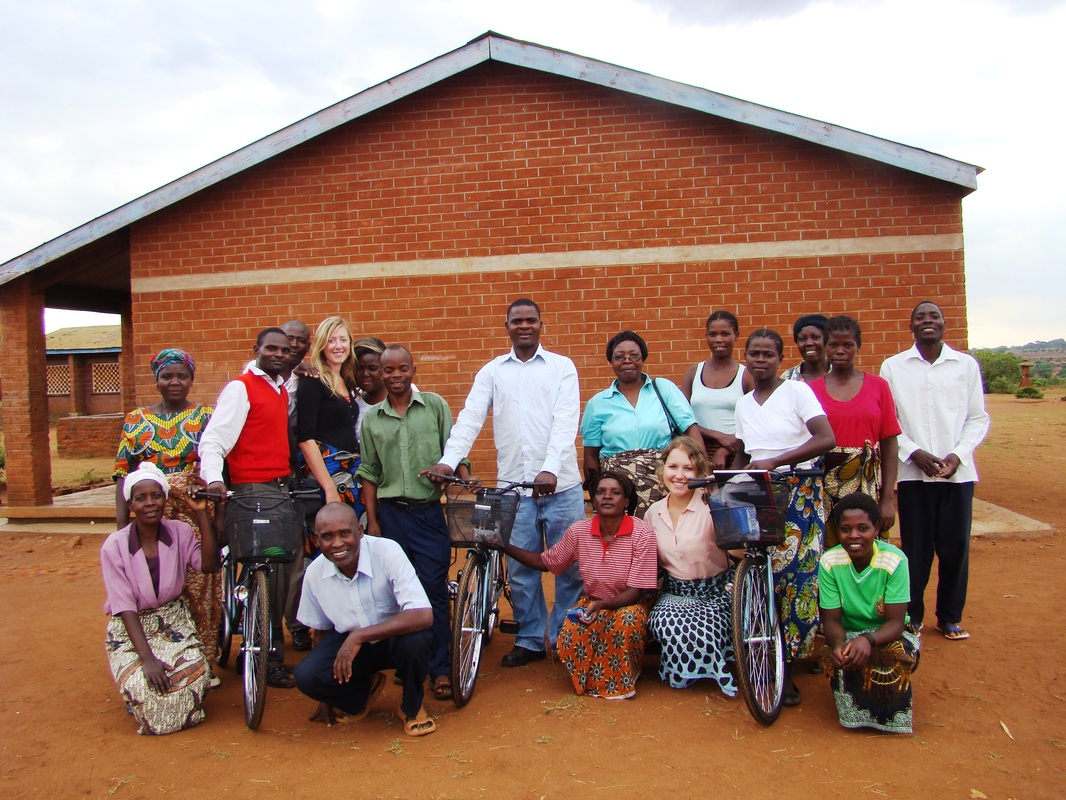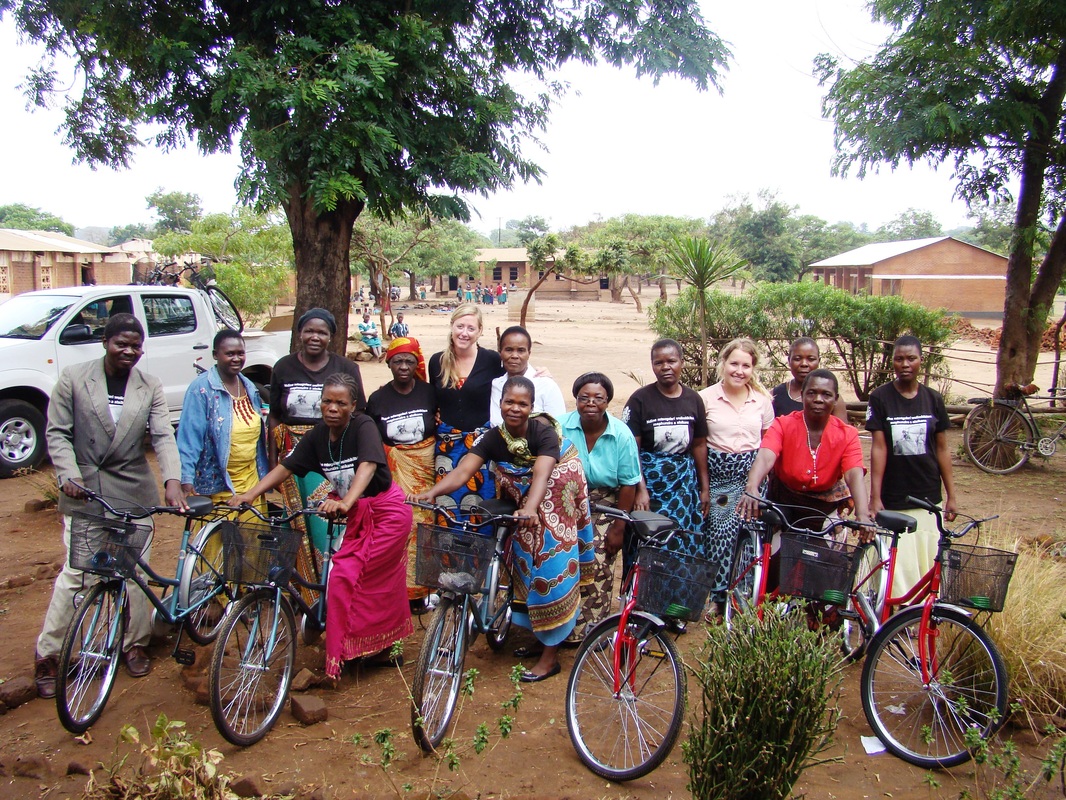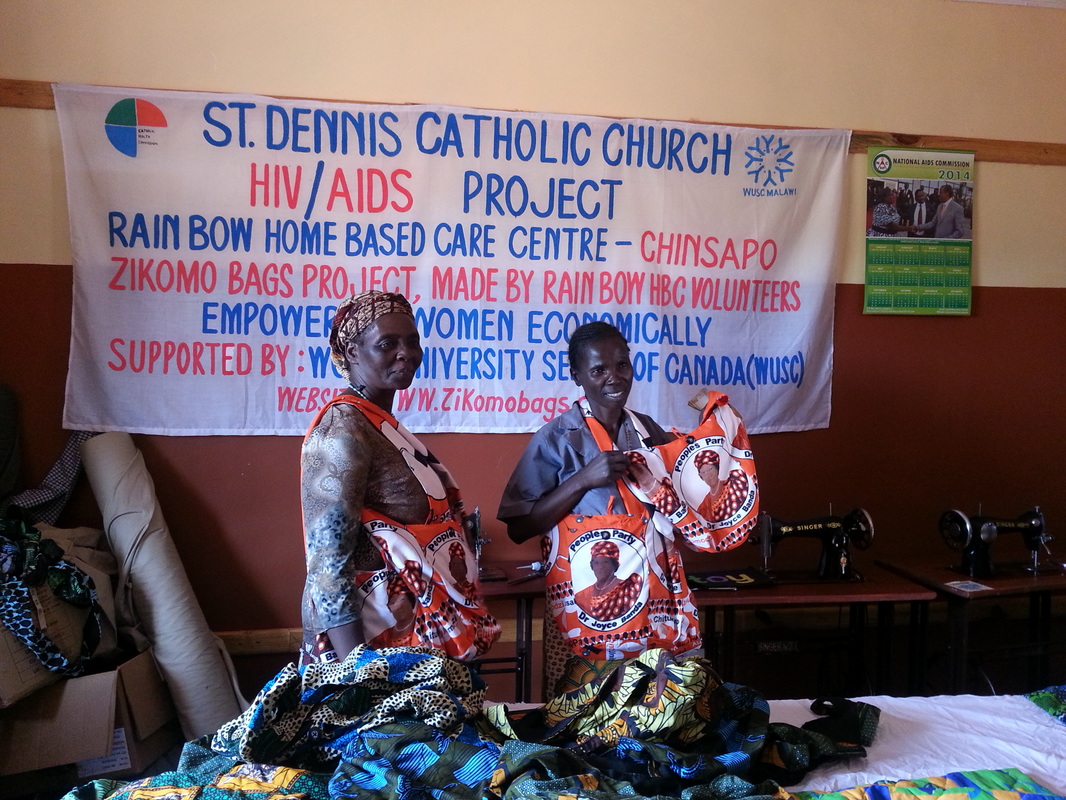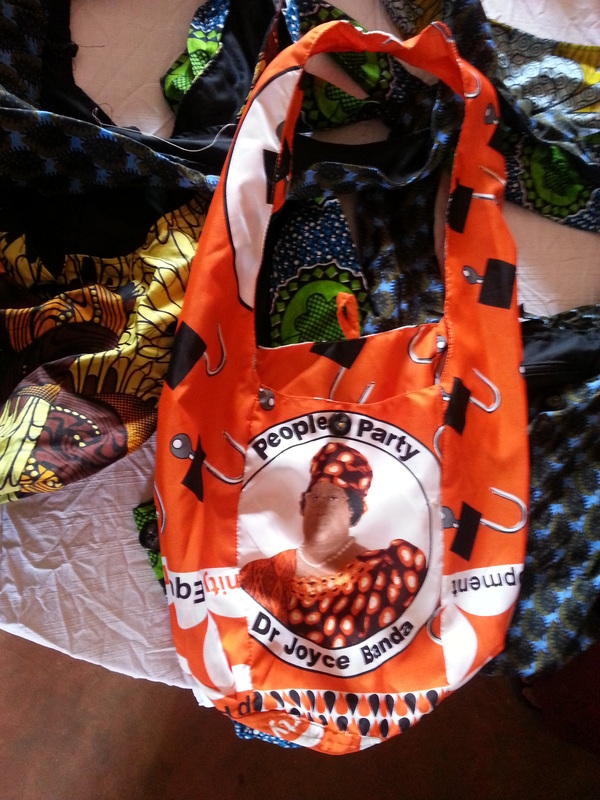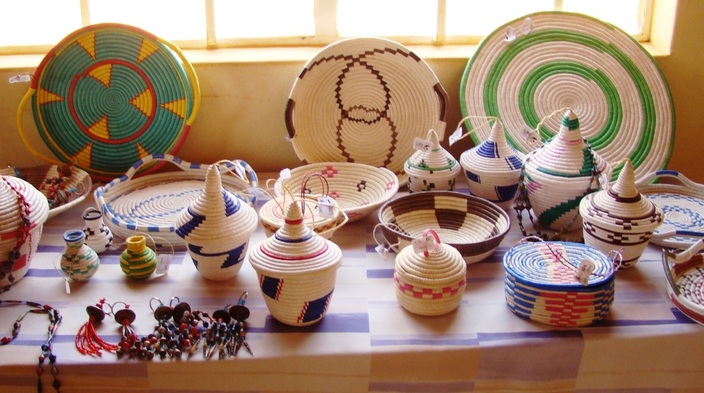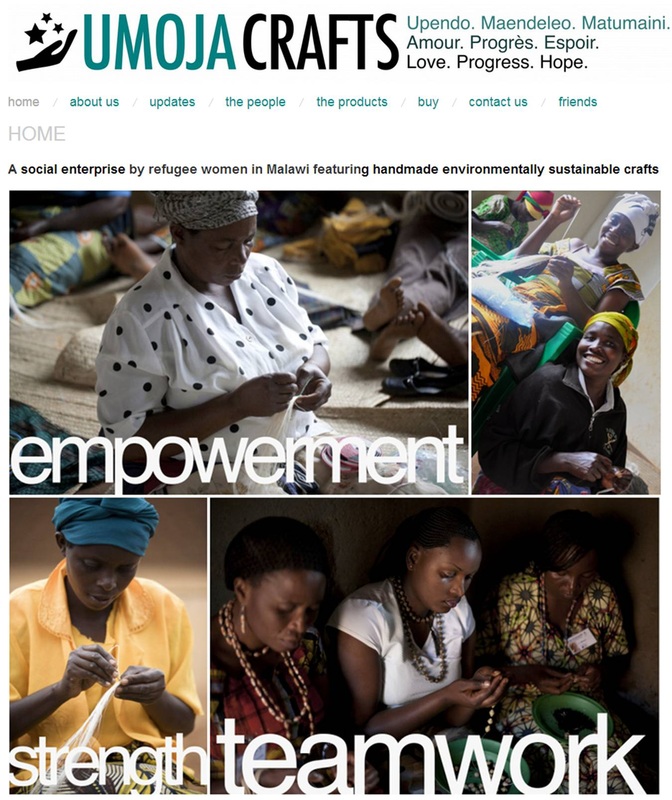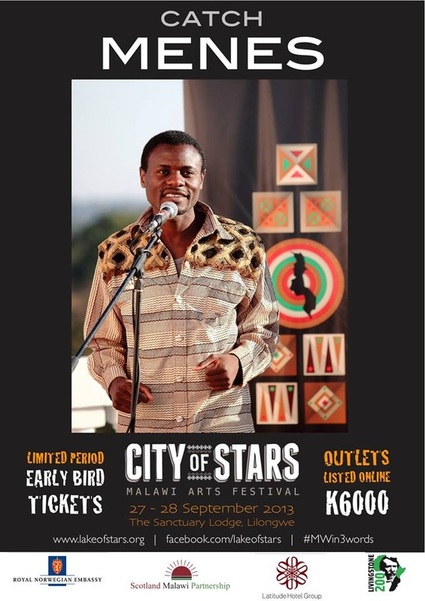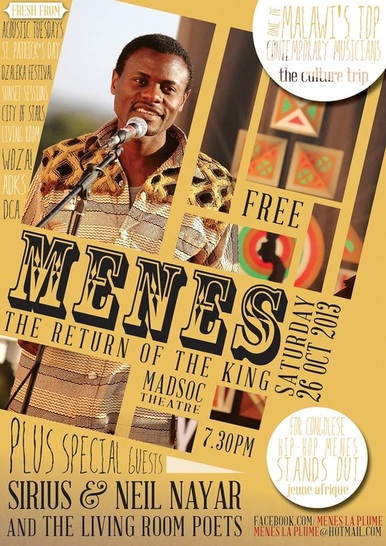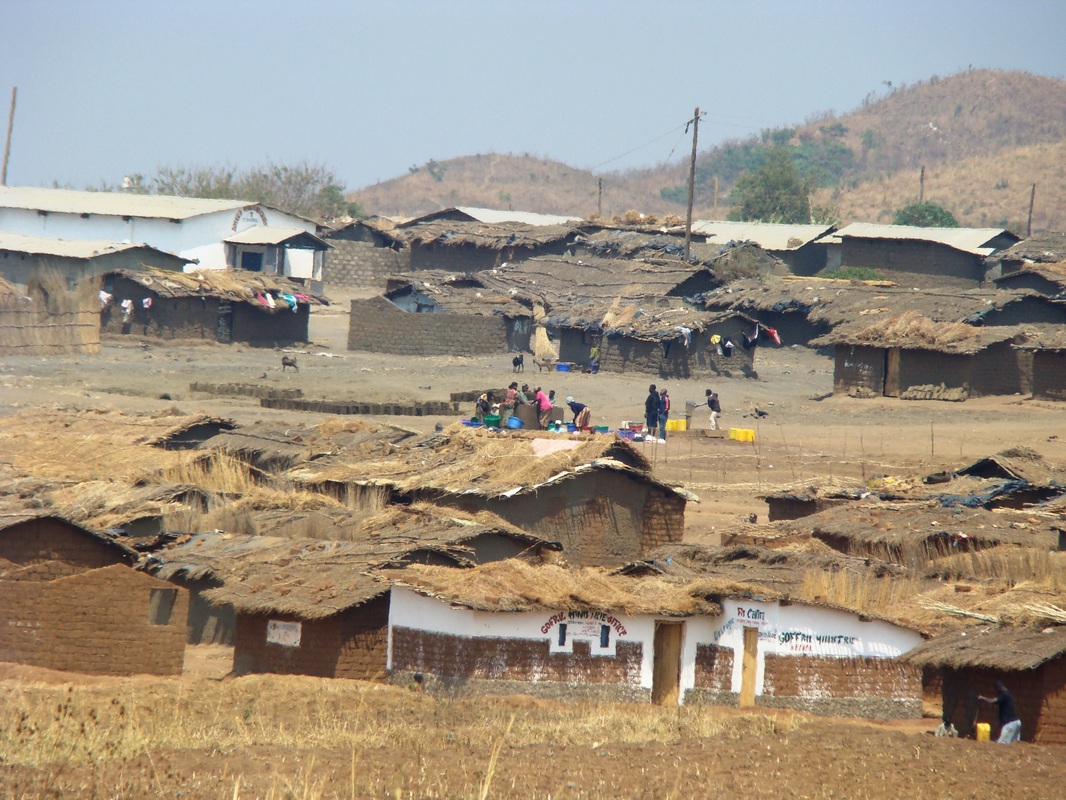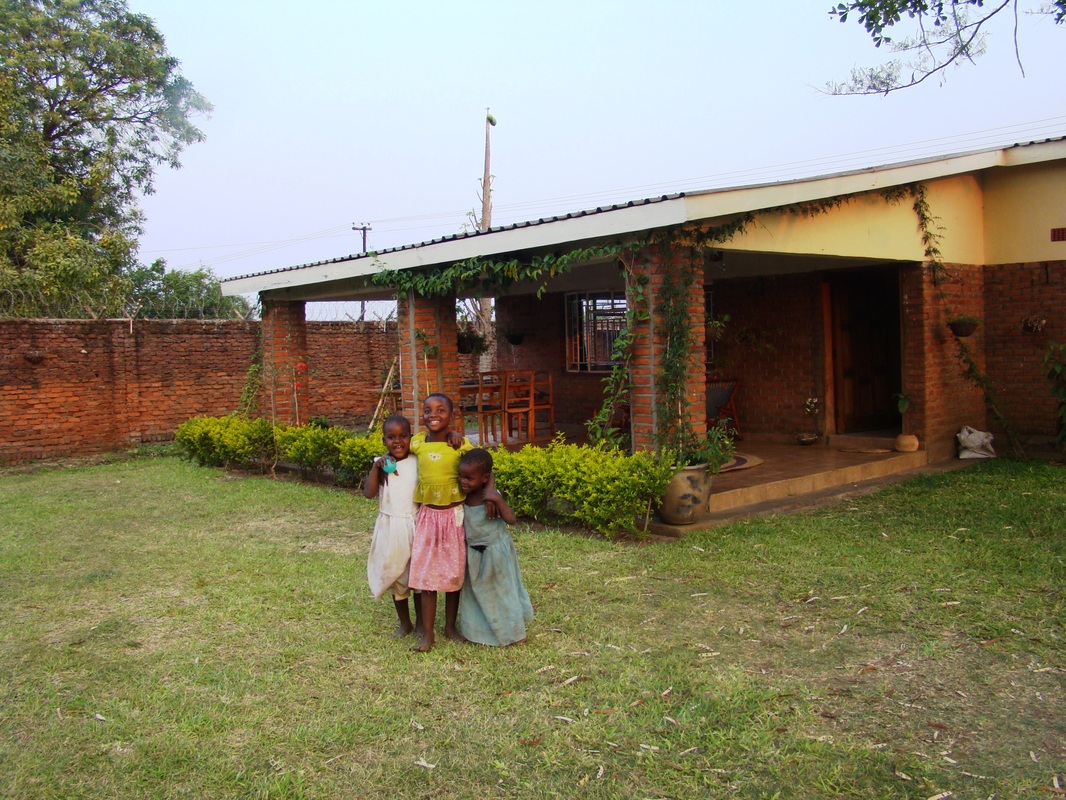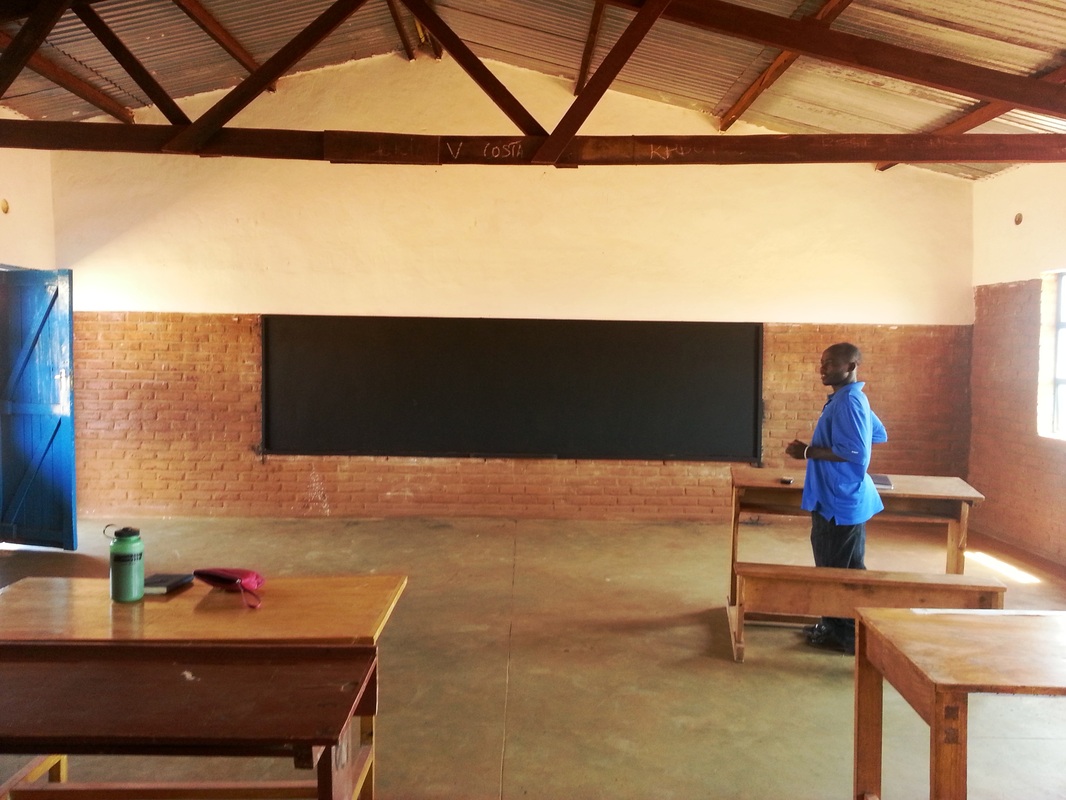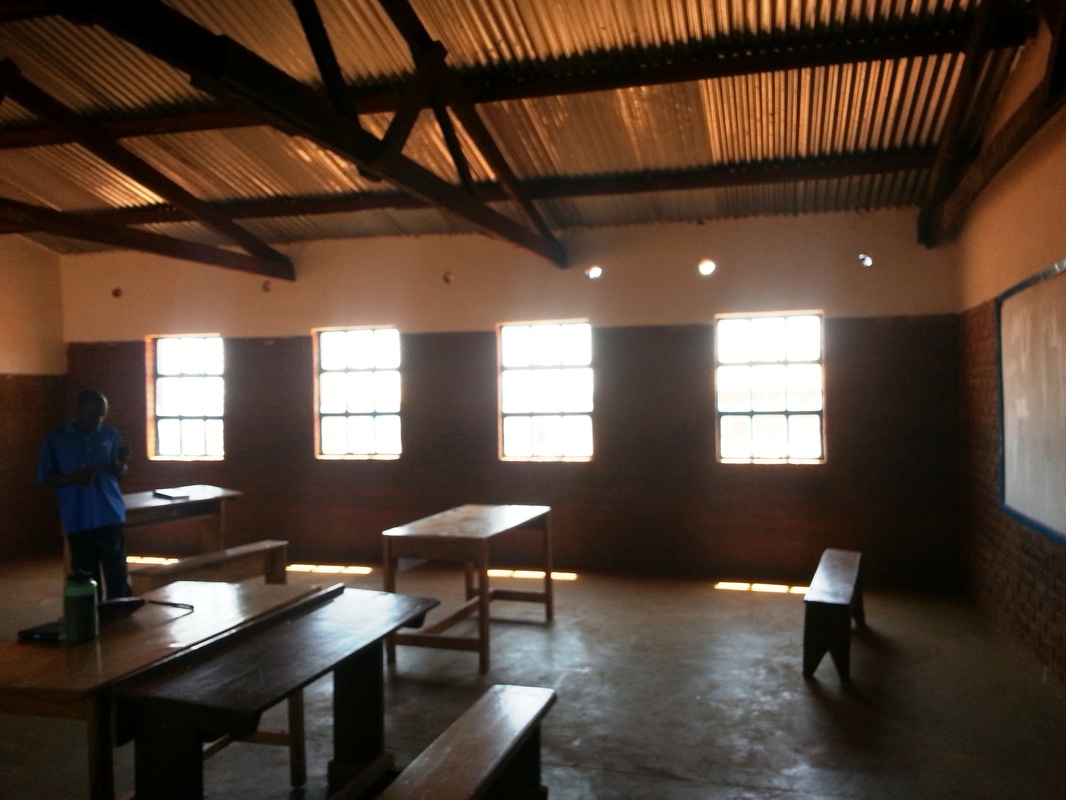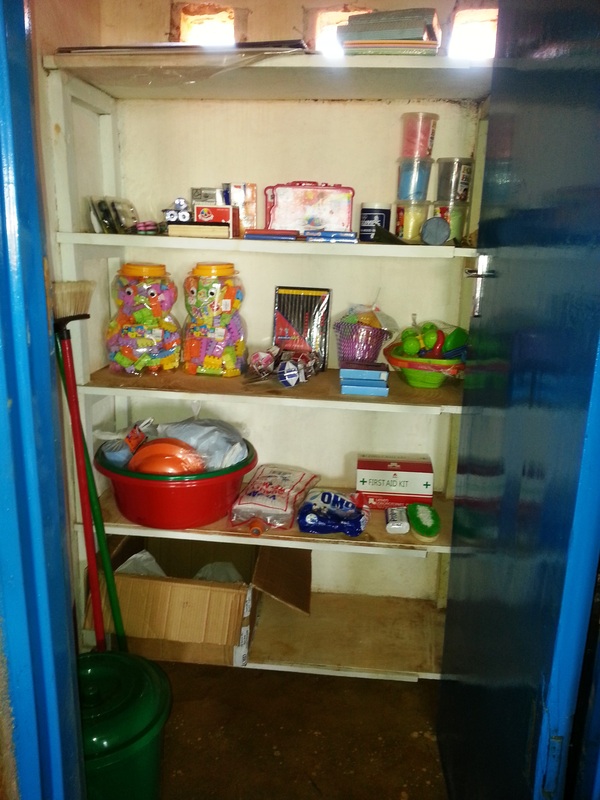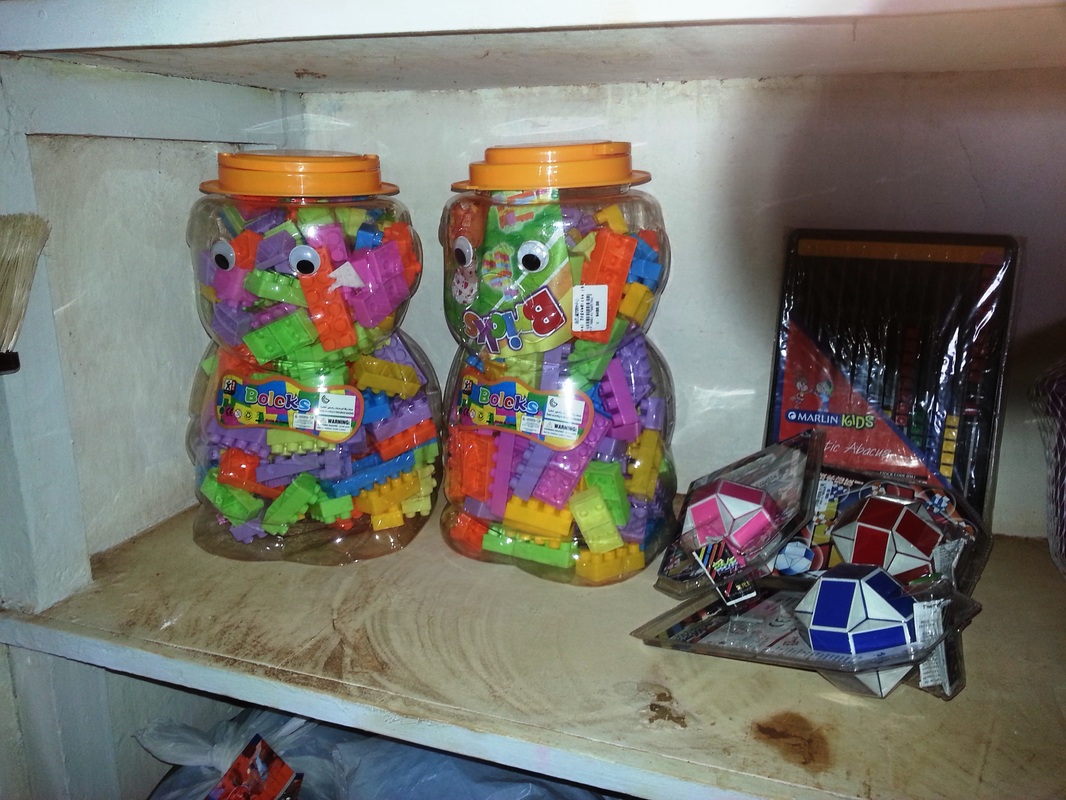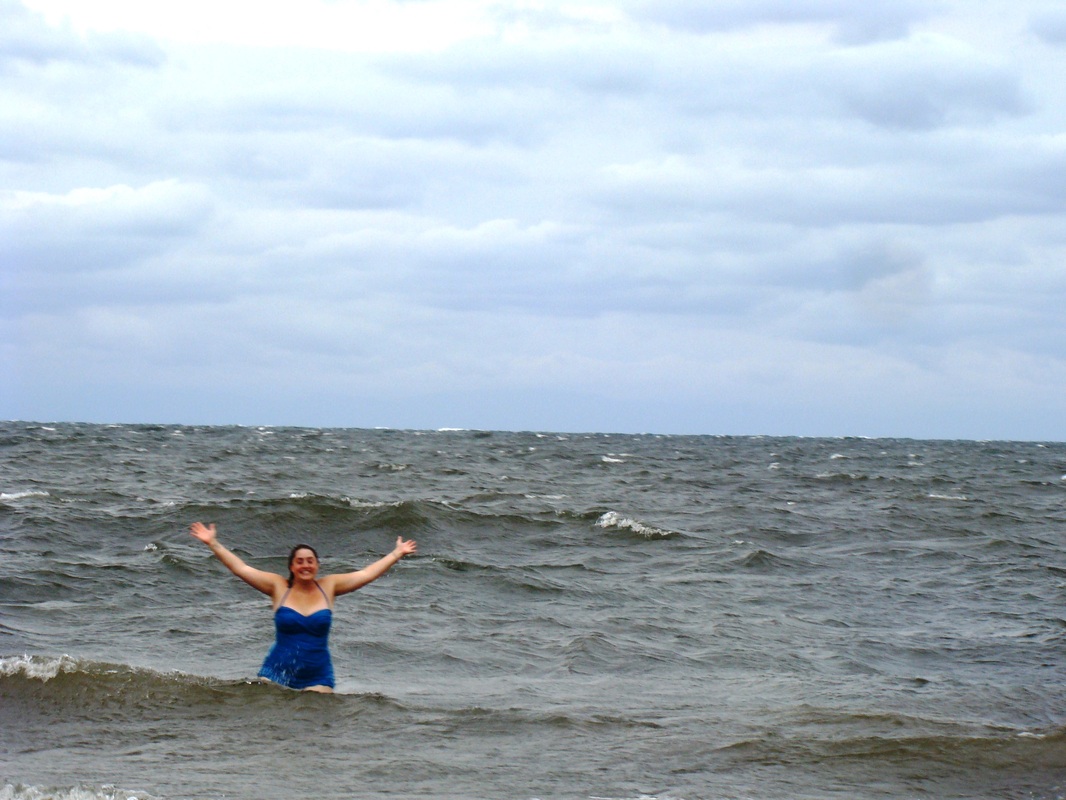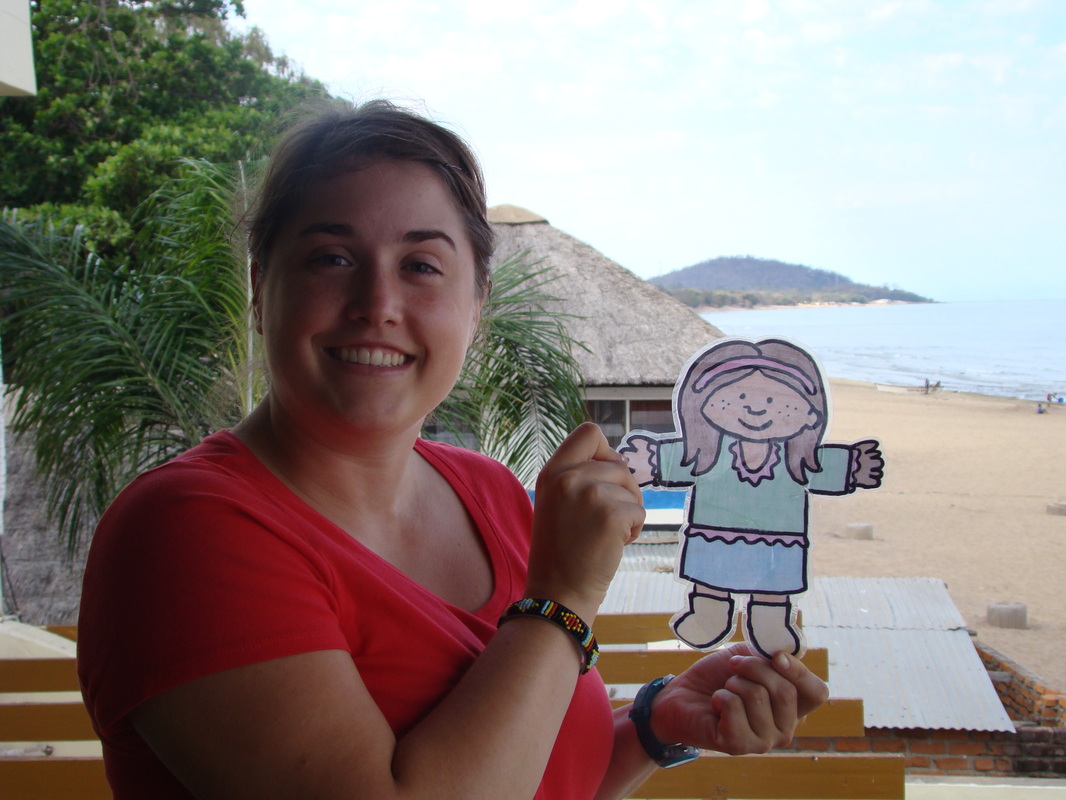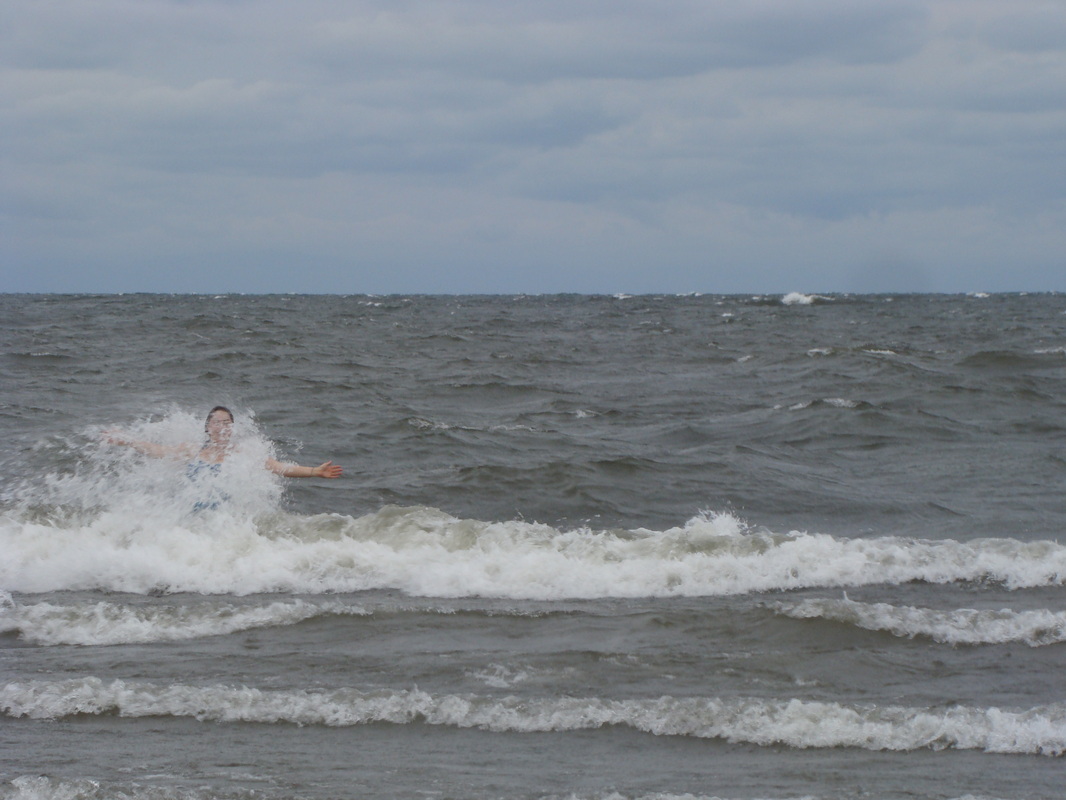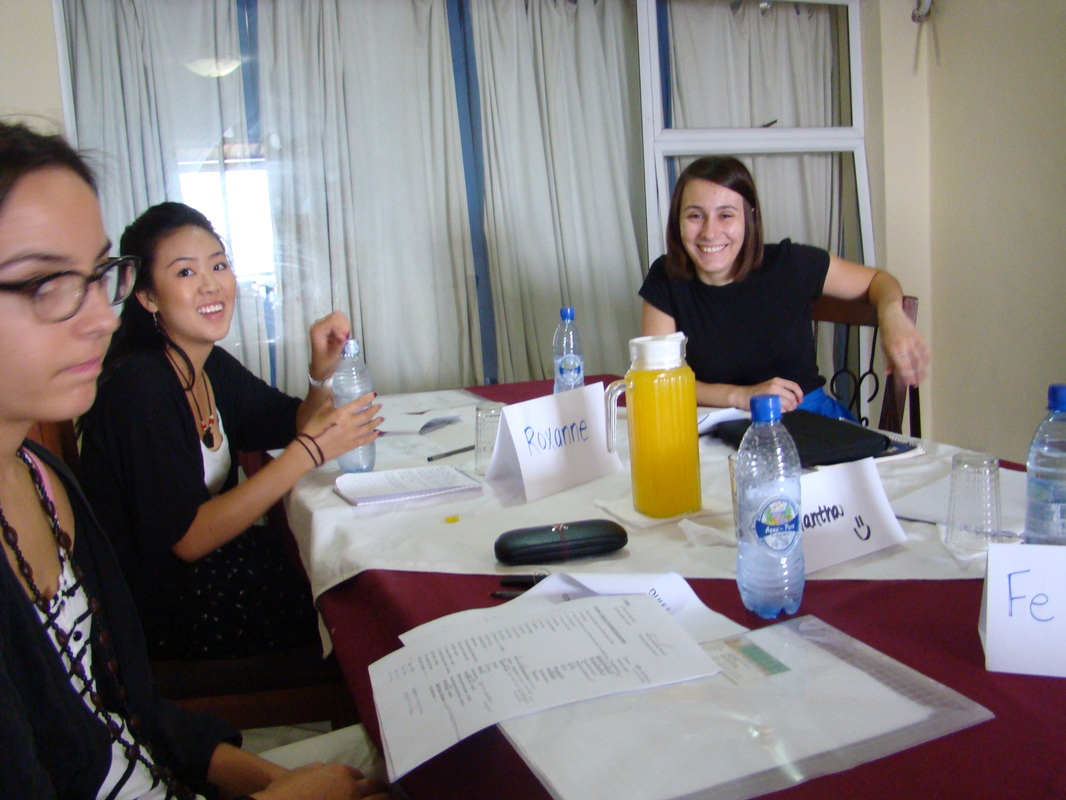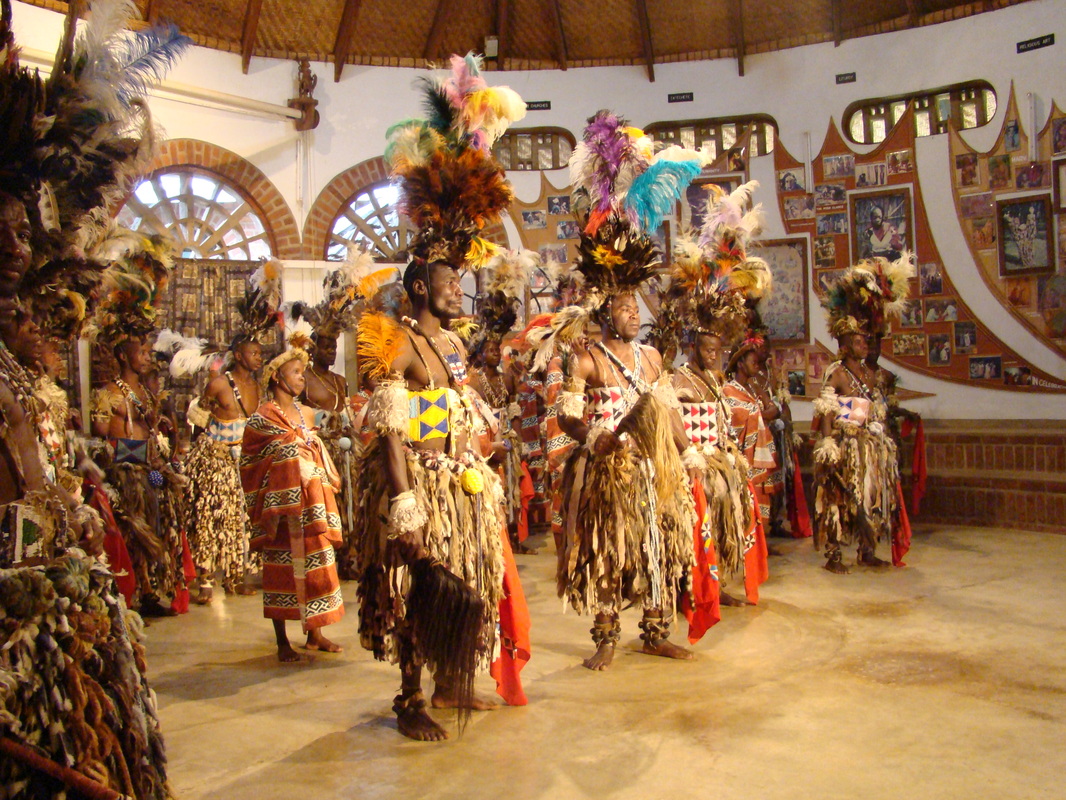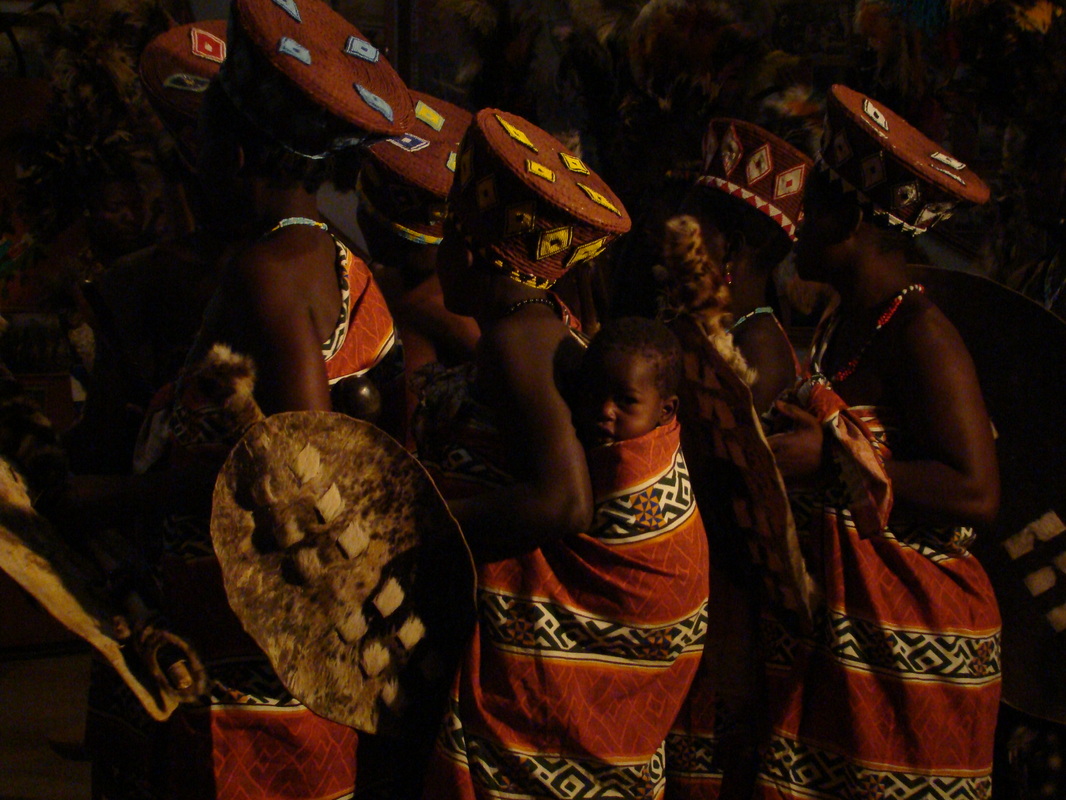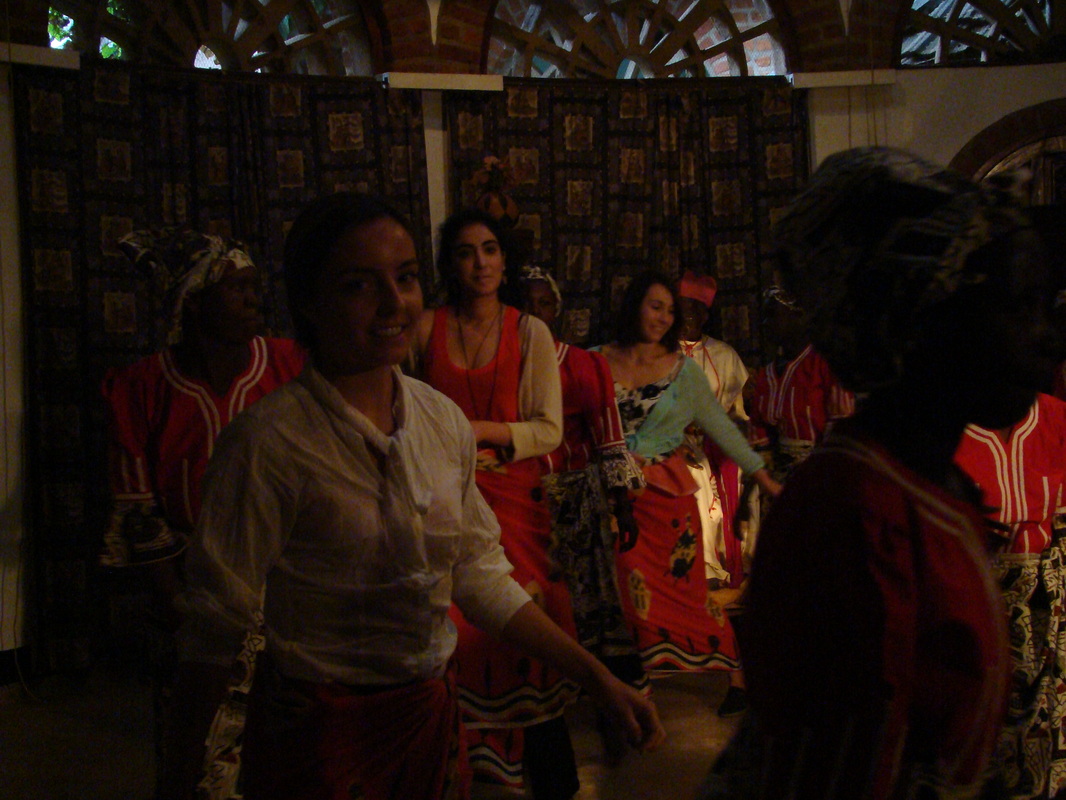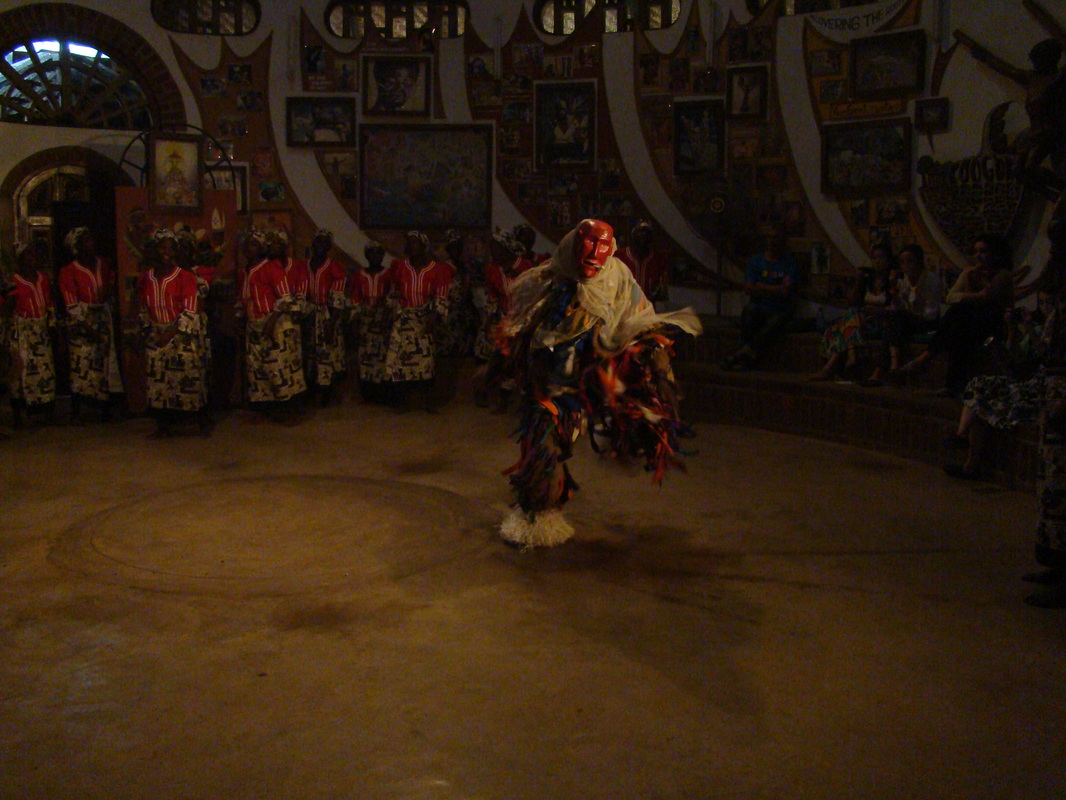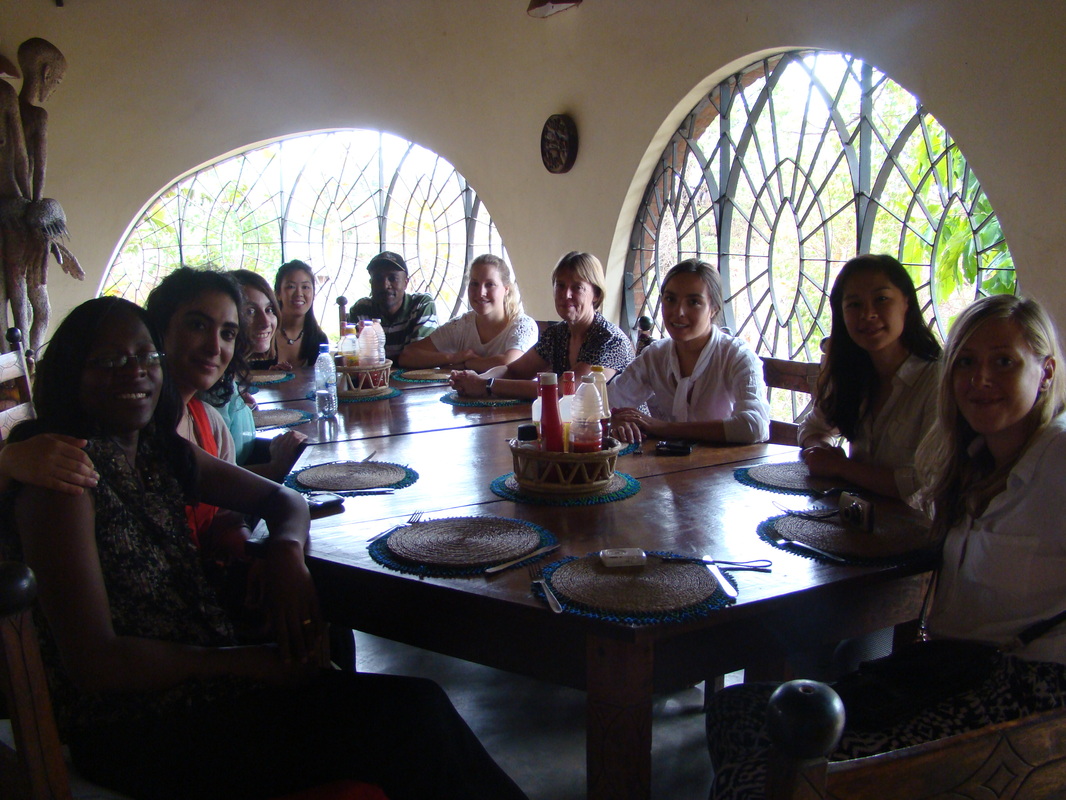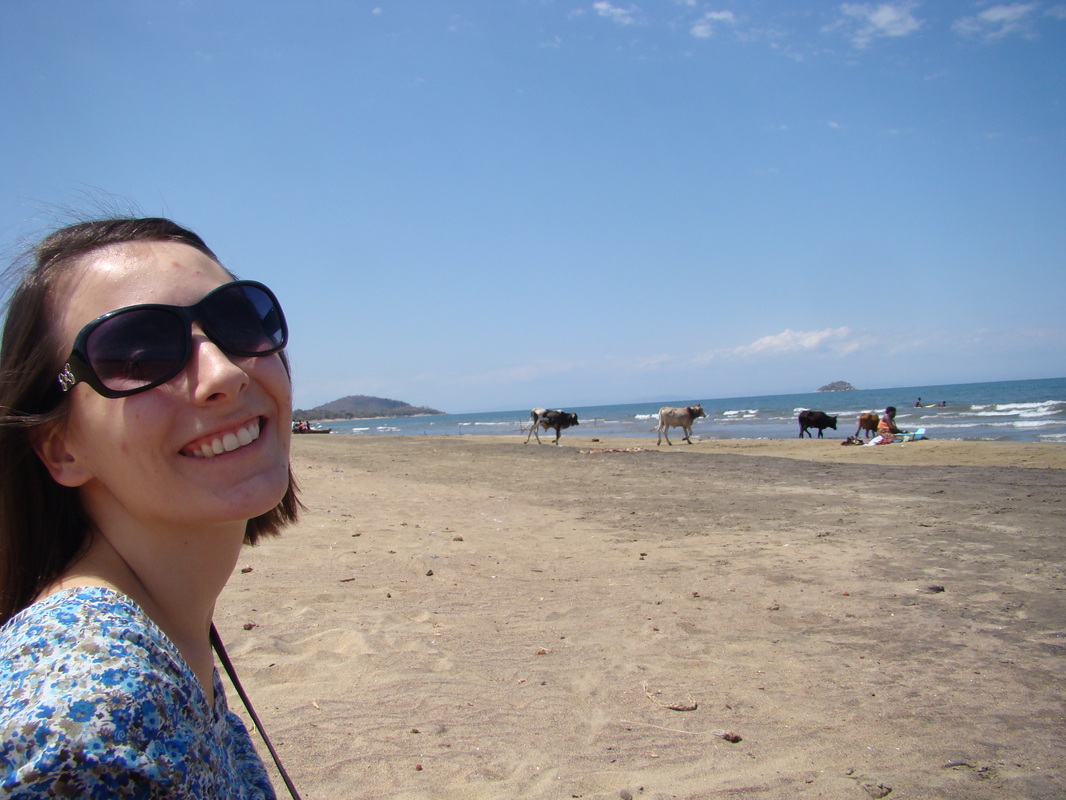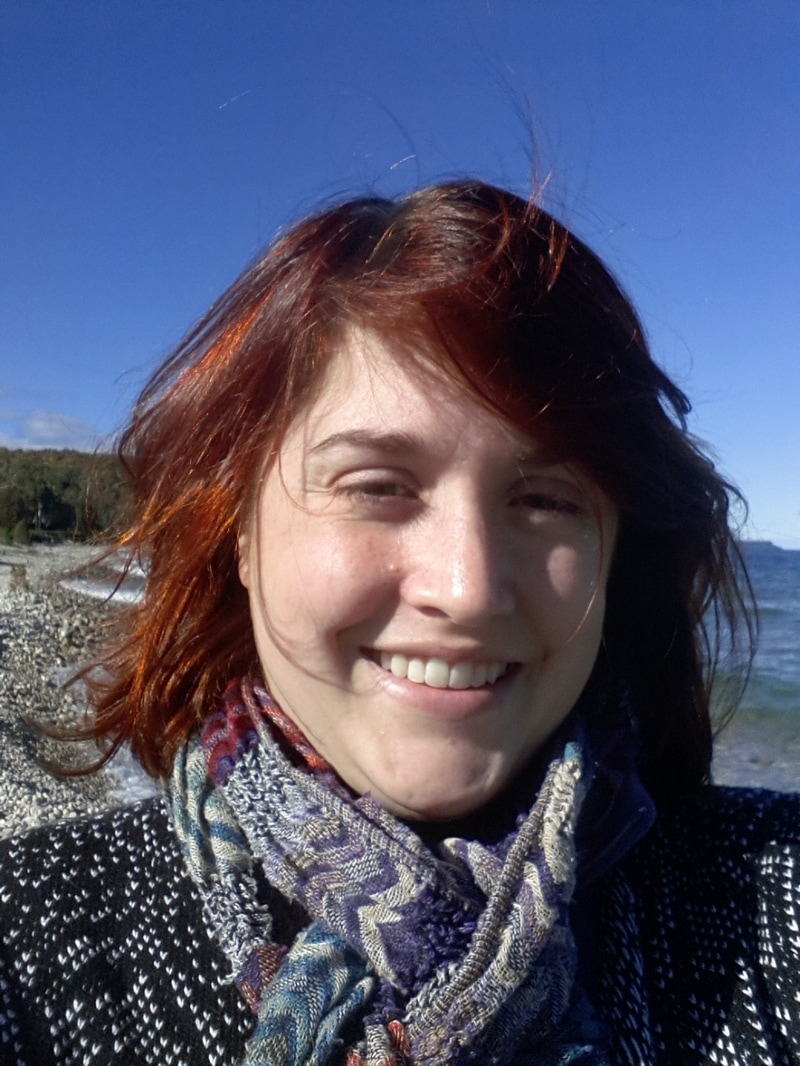|
Today I am sharing a post specially written for you by my dear friend and former housemate, Alisha (crouching by a bike in the picture below). It is hard to believe that it has already been four months since she graced the land of Malawi with her presence. Once upon a time, I was 7,839 miles from my home in the capital of Canada living in the capital of a small landlocked country in Southern Africa, infamously called the “Warm Heart of Africa”. It sounds like a fairy-tale because it now feels like a fairy-tale, but it happened in a flash (or 3 months to be specific). Before I went to Malawi I had never travelled overseas, and as many first-time travelers find, I am filled with wanderlust The “Warm Heart of Africa”, or Malawi, is home to almost 16 million people. While Malawi faces many challenges as one of the world’s least developed countries (LDCs), there is also fascinating potential for change. A deep desire to improve the quality of life and boost community development can be found everywhere you go. Deeply set cultural beliefs may allow harmful practices such as early child marriage to persist, yet there is a vibrant and growing resistance demanding a fair chance for those historically disadvantaged. Transformation is taking place, and I feel honoured to have met some of the Malawians demanding that change. My work with the Forum for African Women Educationalists in Malawi (FAWEMA) was the most inspiring work I have ever done. Not because my own work was particularly impactful (I did try my best—don’t get me wrong), but because I was able to work with Malawian women and men who demonstrated remarkable commitment to fighting for girls’ education. Many of the dedicated people at FAWEMA worked extremely long hours yet still struggled to get by. I would often try to convince my counterpart to go home, take a break, and let myself and the other intern pick up some of the workload. Despite all of our begging, she always refused emphasizing that the girls needed her to be there. She was right. Without adequate cultural knowledge and connections, there are tasks that a foreigner can simply not perform on his or her own. Without all my colleagues’ willingness to put in the extra time, I would have been unable to accomplish my mandate. It was a type of altruism I have never personally seen before. One to ensure the every girl in Malawi had a better education and a brighter future. Like my colleagues at FAWEMA, education has always been the passion that drives me. When I say education now, I don’t necessarily mean formal education (although I am privileged to have had access to a Canadian education). I mean education under the shade of tree, education between community members, education in the local market, or education wherever and in whatever form it may appear. My time in Malawi taught me to appreciate the nuances of this diverse learning process. It taught me to be patient. Because there is nothing worse than an impatient development worker expecting another society to function the way he or she wants it to.
So my final advice for anyone reading Katiana’s insightful blog is to move with the Malawian current, not against it. Recognize the transformation that is currently taking place and provide as much support to those change agents as you can during your stay. Make an impression on the people you meet, not because of your alternate skin colour or blonde hair, but because you exemplified an unprecedented interest in the lessons they have to teach you. Appreciate each moment, because like all things, this too will pass.
0 Comments
This week, a WUSC staffer from Canada arrived to complete interviews for the Student Refugee Program in Dzaleka. One of the WUSC volunteers living in Blantyre right now, Sasha, has been involved in the Student Refugee Program in British Columbia, and was invited to assist this week. So, the girls and I had some visitors to hang out with, and on Friday afternoon when we were all done with work, we piled into my car and went on an adventure. We headed out of the centre of Lilongwe to an area called Chinsapo, and spent nearly an hour meandering our way through the rutted back roads of the neighbourhood, trying to find our way to a specific church where the Zikomo Bags project is hosted. We eventually made it, with the help of a kind Rastafarian man who ran next to the car for a few blocks, making sure we took the correct turns! Zikomo Bags (Zikomo primarily means thank you in Chichewa) is a project that was started by some WUSC volunteers, one of whom is an INDEVOUR, as a way for some local women living with HIV/AIDS to make a living. They make over the shoulder bags out of traditional chitenje material. We were able to meet some of the women who make the bags, speak with the project manager, Rocky, about the work that the Rainbow Centre does, take photos, and then purchase some of the bags. Visit the website here to see some more of the work they do. A super cool happening is that at a recent event that Zikomo Bags had a table at, the President of Malawi, Joyce Banda, walked past their table. The women presented her with a custom made bag that they had used her political party chitenje for, and she was so impressed that she immediately placed an order for 500 bags to give to her supporters as she heads into the electoral campaign!
The Umoja Craft Group is working to build their self-sustainability and the developments are really exciting! Currently, there are two volunteers working with Umoja - Violaine and me. I leave in two months and JRS does not plan to have another volunteer intern working with the group, and Violaine is leaving the country in August. So, one of my co-workers, Violaine, and I sat down and brainstormed way to help the Umoja group become fully self-sufficient and able to continue to grow the group and their market, and to maintain the current quality and quantity of product. We then had a big meeting with the Umoja ladies - almost all 50 of them came, and we asked them what they thought they should do to become more independent. Their ideas were very similar to the ideas that Violaine and I came up with, and so we were able to move forward with the plans. We held a big election, starting with nominations of candidates for leadership of the group. Once we had 6 leaders, the women voted for one of them to be the group president, and the ladies subdivided into smaller groups under each leader. This means that there are now 6 groups of about 8 women, each with a group president and vice-president. We discussed roles that would be needed within each group - such as a quality control officer, and voted women into those roles as well. We are now working with the leadership team to create official policies and procedures for the group, and running trainings for the individual roles, so that they can be completely self-sufficient by August. It has been very exciting to watch the women step into their roles and begin to take initiative and feel more confident in their abilities as they prove to themselves that the group can function without 'azungu' help.
The following essay is one I wrote for my current INDEV course (edited a little to shorten!), and shares the story and art of a friend of mine who lives in Dzaleka Refugee Camp. A powerful wordsmith and captivating performer, Trésor Nzengu, also known as Menes La Plume, is bringing attention to the trials refugees experience through his work. He writes and performs hip-hop and slam poetry, primarily focused upon the difficulties that he and his friends have faced as refugees. Although the arts culture in Malawi is rather small, he has successfully built a fan base and performs regularly at events in and around Lilongwe. Trésor is from the Democratic Republic of the Congo, where he became a local celebrity, performing live around the country, and on television and radio shows. Unfortunately, a few years ago, his work, always aimed at creating change, was interpreted as being written against the government and regime in place in the DRC, and Nzengu had to flee for his life. He eventually arrived in Malawi and has since been living in Dzaleka Refugee Camp, where he has been inspired to write pieces that express the experiences that fellow refugees share with him. Trésor primarily writes and performs in French, but has begun to also work in English, and does also incorporate some Swahili and Lingala into his poetry. As an artist of words, Trésor is motivated by effective communicators such as Mahatma Gandhi and Martin Luther King Jr., and in an interview, stated that his aim to change the world by changing people’s minds and raising awareness of the struggles that Africa is facing. His work, beautifully constructed poems that are performed dramatically with a backdrop of talented vocalists and musicians (usually fellow refugees), are emotionally complex, and take the audience from the highs of an easy life to the lows of extreme loss. One powerful piece, ‘A Quoi Bon’ or ‘What Is Good’, is particularly morose, examining the futility of life in the refugee camp, and Nzengu bares his soul when he writes “Vivant avec larmes aux yeux toujours en quête du bonheur qui ne se trouve nul part ici bas – a quoi bon!”, or “Living with tears in his eyes, always in search of happiness which is nowhere down here – what is good!” Another poem, entitled ‘Dans La Peau D’Une Fourmi’ or ‘In The Skin Of An Ant’, draws a comparison between his experiences as a refugee and the strengths and weaknesses of an ant. One of Trésor’s few poems in English, ‘Imagine’, was written for World Refugee Day 2013, and graphically describes stories of refugees that he has met in Dzaleka Refugee Camp. It contains the haunting refrain: “If it happened to others, it can happen to you too. At every performance I have seen of ‘Imagine’, it has brought audience members to tears and has spurred conversation regarding refugees and the events that precipitated their need to flee. This is exactly what Trésor had hoped to spark through writing these stories into a poem – to humanise and change the perception of refugees to those who do not see them as individuals. Nzengu does not perceive his work as being political, arguing that although it may contain political themes in dealing with refugee stories and opinions, he is not trying to be political, and is rather trying to speak on behalf of the people who are scared to share their stories outside of the safety of their houses. I would argue that contemporary art is a reflection of the culture it represents, and as such, is inherently political, though it may not contain outright political statements. The content of Trésor’s poetry, the stories of refugees, inevitably involves politics as it describes the circumstances that led to families fleeing their homes, and as such, although he does not consider his work political, I believe that it is. Nzengu’s work is politically significant in Malawi, as it depicts the lives of the refugees that currently reside in Dzaleka Refugee Camp and his opportunities to perform in front of Malawian and international politicians could change the perception of refugees’ residency in Malawi. A secondary argument for the political content and context of Nzengu’s work is that an interpretation of some of it was the inciting incident that resulted in him becoming a refugee. Once again, although Trésor does not want his work to be perceived as political, it clearly has been, and as such, has a political significance in that context. Trésor does consider himself to be an activist and is energetically trying to change the society that he has found himself immersed in. At his shows and performances, he often shocks the audience with graphic words and images of the trauma that refugees and residents in conflict-ridden areas experience, and challenges them to use the shock to share with others and make change happen. He has been able to perform at an annual concert weekend in Malawi, at the Lilongwe community theatre, various business and networking events, and at multiple embassies, sharing his art and raising the profile of the refugees in Malawi. Trésor considers his work a success when he is able to help his listeners understand that refugees are people just like them, with potential, skills, and an uncontrollable circumstance that has resulted in them becoming refugees. Trésor also performs within Dzaleka Refugee Camp, and has found that his fellow refugees appreciate hearing their stories through his artistic interpretation, and that they also find hope in the fact that he is able to perform outside of the camp, as they can believe that one day they can grow beyond being a refugee and succeed as well. Nzengu began a Cultural Association within Dzaleka Refugee Camp as a way to give resident artists a way to network and regain their inspiration to create, and is an active member of the Lilongwe Poetry Club. He stopped writing for four years after arriving in Dzaleka, and has credited his current emotional health to the creative outlet that he found when he began to write again. The actions of Trésor to create a space for the arts within the camp are resulting in a greater willingness among refugees to share their stories publicly, and the reincorporation of the arts into daily life is contributing to individual’s healing process from the trauma of the past
Trésor Nzengu is an inspiring and powerful artist, who is using his skills to manipulate words into a tool of change. The unconsciously political nature of his work is modifying Malawian and foreigner’s opinions of refugees within Malawi, and is increasing the dialogue surrounding their circumstances. Trésor’s poetry is creating social changes within the city of Lilongwe and Dzaleka Refugee Camp, helping refugees to voice their stories without fear, and heal from the trauma they have experienced. Ok, let’s strip away all the fun stuff of this placement. My family keeps on commenting on the many vacations I seem to be taking, and asking whether I actually have a job.
In all honesty, working in a refugee camp is hard. The stories break my heart every day, and when I come home from work and have a blog post to write, retelling those same tragedies doesn’t seem to be a fun way to spend the evening. Whereas, telling you all about the amazing weekend trips that I have the privilege of experiencing is a lot more interesting to me. But, I understand where you all are coming from, so here goes sharing some of the harder stuff. The Umoja women’s craft group is made up of vulnerable women from in the camp. Some of them have lost their families to violence, others have managed to flee with their families. Some of the typical stories involve the loss of a child or plural children, raped and pregnant teenage daughters, abusive husbands, currently kidnapped children, head-hunters looking for families because of their last names, and the common and unrelenting drive to continue with life and do their best to make the future different for their children. They lead a difficult life in the camp – when the rations that the UNHCR gives out equal to about 800 calories/day/person, basic survival comes into question. So, JRS runs the craft group and we do our best to find them markets within which to sell their products, and work with the group to improve their quality and tailor their designs to the market. We are trying to build the leadership within the group so that they can run it themselves, but there are cross-cultural and family rivalries within the group that make handing leadership over to the women a complicated process. The special needs class that I work with is also comprised of hard stories. During the home visits when the teachers and I did initial evaluations of the children and learned more about their special needs, we had multiple parents say to our faces, in front of their children, that the kids were worthless and had no value, so why should they go to school? It is extremely rewarding to now see some of those same children learning by leaps and bounds, but the discrimination is still faced at home, and we know that when they leave our classroom, they will most likely go and sit in a dark corner in their home, and wait for the next day that they get to come to class. In comparison to the lives led by the refugees and Malawian subsistence farmers, I have nothing to complain about. Work can move slowly at times - try having an entire segment of your work put on hold because you are waiting for a single piece of paper (for three weeks!), but there is an overload of things to do at JRS, so I'm never sitting around bored. I can get nearly everything that I am used to at various stores in the city, and have an amazing friend circle. I have found a church family that suits me, and am generally just thankful that I get the opportunity to live and work in this country. But there are downsides… there are power cuts a few times a week, which I have learned to deal with and they don’t really bother me anymore… unless I have a pizza half cooked when the power shuts off! I went three days without water last month – and that was difficult – I drink at least 2 litres of water a day, and when you aren’t certain when there will be more water coming out of the taps, it gets a little worrisome. Thankfully, I have the funds to be able to purchase bottled water as needed, so I can work around it, but it is definitely not an enjoyable experience. My poor co-INDEVOUR Anna, who is located in Blantyre, Malawi, experiences much longer in duration and more frequent water and power cuts in her neighbourhood, and I am amazed at her fortitude! Living on an entirely different continent than my family is no walk in the park either. We are seven hours apart and that makes it rather difficult to find a time that works for everyone to skype or have a phone call. When you’ve spent over 20 years living with your parents, not speaking to them for a month at a time is a very strange thing to experience. And trying to explain life in Malawi just doesn’t translate very well. The richness of the culture and land and people is just not expressed well enough through stories and pictures – though I do my best! So, now you have the nuts and bolts of the life I lead. And don’t think that this negative Nelly is here to stay – I love my job and life in Lilongwe, and will hopefully soon have permission to share some more details from my job and happier stories from friends who live in the camp. Dzina langa ndi Katie! (My name is Katie!)
Let’s learn some Chichewa this week! These are the words that I generally encounter on a weekly basis while walking to and from work and shopping in the city. Greetings: Mwadzuka bwanji? (Did you wake well?) Ndadzuka bwino kaya inu? (I woke well, how about you?) Ndadzuka bwinonso, zikomo! (I woke well, thank you!) Muli bwanji? (How are you?) Deli bwino kaya inu? (I am well, how about you?) Deli bwino, zikomo! (I am well, thank you!) Mwaswera bwanji? (How did you spend your day?) Ndaswera bwino kaya inu? (I spent my day well, how about you?) Ndaswera bwinonso, zikomo! (I spent the day well, thank you!) Food: Chakudya – food Nyama – meat Nkhuku - chicken Nsomba – fish Nsima – corn meal porridge Masamba – greens Nyemba – beans Zipatso – fruits Useful Words: Choka – get outta here (got taught this one by the kiddos in my yard… they don’t like it when I have to leave for work and don’t play with them!) Ndikufuna madzi – I want water Pepani – sorry Pang’ono – a little Tiwonana – see you later! Palibe vuto – no problem Inde (or ehh) – yes Ayi / iyayi – no Tiyeni – let’s go Bwanji – how Kuti – where Lero – today Mawa – tomorrow I have been told by my family that I need to begin featuring more of my work on the blog, as it seems as if all I do is go on vacations! Well, I'd love to have been giving more updates on work, but it has been moving slowly, and didn't really merit a blog post. However, this past week was the first ever special needs class held in Dzaleka, and we have officially kicked off our program! So that is super exciting and, as much as I'd love to share pictures with you of the children in class, I need to get permission from their parents and JRS prior to being allowed to post them publicly. We started out with nothing. An idea for a special needs class that seemed to be needed, a list of potential participants who are currently enrolled in the special needs Respite Care program that JRS runs, and two teachers at the JRS schools who have been trained in education for children with hearing and visual impairments but currently are engaged in teaching other classes within the primary and secondary schools. The teachers, some Respite Care workers, and myself did home visits with the children who were potential students, and spoke with their parents about their abilities. Some of the children have multiple disabilities and others were simply at a disadvantage and missed out on school. We have about 5 children with hearing and speech impairments, 4 with visual impairments, and 6 who have learning or multiple disabilities. We were given a classroom to use, and my supervisor and I ordered some furniture to be made for it. A few weeks ago, we went to a local shopping centre and bought some classroom supplies and toys. I stocked up the closet, arranged with a co-worker to get some pictures and the alphabet painted on the walls, and did a ton of research on non-verbal communication. The class is going to be an extremely fascinating experiment, as the children, if they speak, speak Swahili, Kirundi, or Kinyaruanda, or another language - whereas the teachers are Malawian and speak Chichewa and English. So not only do we have the non-verbal barrier with about half the class, we also are speaking in completely different languages most of the time! One of the items that I did a lot of research on was PECS, a picture exchange communication system, and I spent a week collecting images, printing and cutting them out, and laminating them for the class. Hopefully, the ability to choose images to represent activities and emotions will make classroom communication a bit easier. Another exciting development is that the funding for an additional teacher has been found, so one of the special needs teachers will be relieved of his duties and our class will be able to expand from one day a week to the full week! I think that the paintings will be completed later on this week, and the rest of the furniture will arrive, and then I can show you pictures of the fully kitted-out classroom. The first day of class was small - only three children managed to come out. The teachers worked with their parents to create Individualized Education Plans, and I got out the blocks and let them at it. I wanted to see whether they would understand the potential creativity inherent in the blocks. The children built towers - one of them sorted her blocks by colour within the tower, but even when I built a house and other shapes, they simply took them apart to add to their towers. It was very interesting. Then the teacher joined us and we did some more intense learning activities with the blocks - sorting by colour and sorting by size. One of the children caught on very quickly and helped the other two to find their blocks, but the other two took a long time to grasp the concept. We also got out some pencil crayons and paper and let them colour. Two of them mimicked my left-hand writing (oops!) and they all enjoyed creating their masterpieces. The teachers and I wrote their names out on the paper and drew simple shapes for them to try to copy. Again, they were at very disparate levels, and one of the little girls spent most of her time drawing Rs and the shapes we drew for her, while the other two mainly ignored our attempts to get them to copy a shape. There are plenty of needs in the classroom still - the basics are there, but there is so much more that we could implement to further improve the ability of the children. I am searching for Braille supplies, as we would like to teach the children with visual impairments how to read and write Braille, but need the styluses, frames, and paper. We have some mobility issues to deal with, and are looking for funding for wheelchairs and tricycles for those children. We are also hoping to get the children with visual and hearing impairments to a medical centre to determine what we can do to improve their learning capabilities with hearing aids and glasses, but need to find funding and a specialist in order to do this.
So that's your update on the special needs class! The teachers and I will be running our second class on Wednesday, and are hoping to have a few more attendees. That line keeps running through my head here in Malawi. Money is a little shocking – as there are coins for 1 kwacha, 5, 10, and bills for 20, 50, 100, 200, 500, and 1000. When we arrived, and found out that 1000 kwacha is equal to about 2.5 USD, we wondered why there weren’t larger bills – only to be told by a friend that the 1000MK bills are relatively new!
The cost of living, in order to live like a typical Westerner, is equal to that at home. I am surprised every time I go shopping for groceries and spend $50 easily. It is a little disconcerting to be asked to hand over thousands of kwacha when shopping – but when 400 MK are equal to 1 USD, it quickly adds up! And yet, my experiences here have also shown that it is possible to survive on a dollar a day – in fact, the majority of Malawians and the people I work with do that. And yet, it is simply surviving – barely having a roof, clothing, and food beyond nsima (corn meal porridge) and tomatoes for your two meals a day. The average Malawians are all malnourished – it is such a problem that Vitamin A packets are sold in the corner shops, and the government has passed a law requiring sugar producers to incorporate certain vitamins into their sugar. It is fascinating and horrible to see the wide range in incomes and lifestyles here. As I live pretty similarly to at home (and although I’d be fine living with less luxury, it is generally expected of me to live like this, and if I didn’t, I’d be looked down upon by Malawians for not supporting their economy enough), it is not unusual to spend a few thousand kwacha on a meal, or on a taxi. However, for average Malawians, they go to the local restaurants (where I get food poisoning when I go, though I still do – it’s yummy food!) and spend less than 500 MK for a large meal, and catch a minibus to get home for 150 MK. The other week, I noted a huge disparity in the way I and some of my refugee friends purchase phone credit – I buy it in multiples of 1000 MK, and they buy it in 20 MK increments. When 1 text costs 12 MK and they are purchasing less than 2 texts at a time, that shows me just how little money they have to spend on items beyond the life necessities. And yet – it is such a diverse city, and when I was waiting at the bank the other day, I watched a lady deposit probably 3 or 4 million kwacha in her account – she had a full grocery bag of cash! Anyhow – I just wanted to share some of my observations on the very interesting world of the kwacha! This week has marked the first days of real work on my new mandate. I was assigned this new job decription about two weeks ago, but haven’t yet shared because I had not begun official work on the project, and was therefore a little confused about how my role would work. Now, I am so excited to tell you how God has been working behind the scenes to set up my placement as perfectly as could ever be imagined for me. I am passionate about orphan and vulnerable child care, with an extra special interest in special needs children, if you hadn’t noticed from my blog verse and many of my posts. When I initially applied for my fourth year placement, I scoured the list for positions working with vulnerable children, and the closest I could find was working in a youth center. So, as I am more interested in younger children than teenagers (the hormones – oh dear!), I diverted to working with vulnerable families, and found the perfect job in the JRS placement. Then, two days before our applications were due, the placement coordinator informed me that the JRS position had been dropped from the list and I would have to apply elsewhere. I really did not want to, and ended up applying to fewer positions than recommended, because I am simply not interested in the environment focussed side – I want to work with people. I was rather stubborn (thanks to my German genes!) and ended up emailing the placement coordinator and WUSC coordinator over Christmas break, to request that they reassess and consider letting me apply to JRS after all. My persistence paid off, and not only was I allowed to apply to JRS, I was given the opportunity to have a skype interview and question session with my potential supervisor, as a way to ensure that both sides knew what they were getting. I ended up with a confirmed placement about two months before anyone else in my class, which was amazing for me, as I hate the uncertainty of in-between places (yes, I am a control freak). I was ecstatic! But, as with many areas of life, doubt soon struck in early summer, and I began to question the choice of my placement – my second choice placement as a job on the environmental side of things, but was located in Burkina Faso, where I’d be able to improve my French and spend my free time volunteering at a local orphanage. Just in time, as often seems to happen, God confirmed my persistence and erased my doubts when WUSC had to cancel their placements in Burkina Faso due to violence in the area. One again, I was so thankful for my Malawi placement – if I had pursued the Burkina Faso placement instead, I would have been searching for a new placement 1.5 months before needing to leave! So, now on to my actual job! My original mandate was that I would work with the Umoja women’s craft group to improve their market and the sustainability of the venture; that I would assist in expanding the community garden through the creation of a new course in permaculture principles, and that I would work with the college and community libraries to improve their organization and increase their collections. All of these projects are things that I have interest in and skills that I can apply – but, don’t result in a lot of interaction with children. Then, about three weeks ago, the JRS country director determined that a volunteer placement coud be better used in a very different position. When she proposed this change in the mandate to me, I was hesitant to get too excited or to share, because I thought that my program might not approve it. However, when I submitted the new job description to my program for approval, it came quite quickly! So, now I can introduce you to my new job! I am now working in a supervisory role in the implementation of a new special needs class in the JRS primary school. There are two teachers at the school that are trained in hearing and visual disabilities, respectively, and they will be running the class, with assistance from Respite Care workers. I will be managing the files, monitoring and evaluation and reports for JRS, as well as being an educational assistant as needed within the class. Today, some of the Respite Care workers who are familiar with the children took the teachers and I on home visits and we were able to do some initial evaluation and meet the children. It will be a very interesting class! The ages range from 7 to 14, special needs and disabilities range from physical issues such as injuries, blindness, and hearing issues, to mental disabilities that range from learning issues to severe mental delays. We will definitely be learning a lot about these children as we begin, and I am already in love with all of them – they are so sweet! Now our team is working on kitting out the schoolroom which is currently an empty concrete room, and preparing some further evaluation and introductory curriculum materials. I am just so blown away by the perfect fit that this placement is for me! My hope following this degree was to either get my library sciences degree or education degree, with a focus in special needs education, and then I hoped to work with special needs children somewhere in Africa. How cool is it that I now get to do that as part of my degree, and I will now be graduating with experience in my dream field?! Sorry for the crazy long post – but there was so much to share about this experience! This song by Hillsong United is one that has been carrying me through the lead-up to, and beginning of this placement – and I must say that as I stepped out into this great unknown of moving across the world, and being in limbo at work for a few weeks, God’s grace and peace has been my constant comfort and I’ve been full of joy, even when in the uncomfortable place of waiting. Enjoy! This past week was a full one with a five day Language and Cultural Training by WUSC in Salima. Salima is about 1.5 hours away from Lilongwe, and is the name of the region and a town right on the shores of Lake Malawi. Lake Malawi, by the way, covers nearly 30,000 square kilometres, is 580 kilometres long, and 75 kilometres wide, and boasts the greatest diversity in fish species of any freshwatering lake in the world! The weather while we were there was mostly stormy and overcast, though we did have a few afternoons with sun (and you better believe that I went swimming even when it was stormy out - I only get so many chances to go swimming in Malawi, and that lake is just lovely!). It was great to get to see Anna (my fellow INDEVOUR in this country) and meet some other WUSC volunteers who are living in Blantyre, as well as hang out with the WUSC volunteers that I live with in Lilongwe. In total, there were nine of us there for the training - all girls, and nearly all in our twenties, so we had a blast! The first two days of the training were cultural training, and our facilitator, Franceswell was a rather funny guy. We enjoyed learning about Malawian history and culture on the first day, but it seemed to us that he got a little sidetracked on the second, so it wasn't really our favourite. The third day was extra fascinating, as we drove to nearby Kungoni Centre of Culture and Art. It originated from the Mua Mission, an evangelistic movement set up by missionaries in 1902. In the 1970s, a Father came and set up the centre as a means of teaching local artisans more skills in woodcarving, and evolved into a way to preserve the traditions of the local cultures as well. Chisale (the Malawian name given to the Father who began the centre) was our tour guide for the day, and explained to us the traditional dances and their meanings as a troupe of local dancers performed for us. The dances are family dances, so the husband and wife always participate together, which I thought was really neat (and some of the women carry their babies on their backs). The traditional Chichewa dance is called Gule Wankulu and involves men dressing in costumes that represent various things, and performing in character while the rest of the village sings their song. It was very interesting, as there are thousands of different characters, and many have multiple songs - but they all knew them! Also, these characters and dances are a way for information to be communicated among the villagers - for instance, one character represented a heavy drug user, and his song warned against becoming addicted to drugs. Some of the girls even got to dance with the women during one of the songs! The fourth and fifth days were language training days, and we had a lovely teacher named Austin, who, very patiently taught us the basics of Chichewa. He really was amazing, as not only did he understand the questions we were asking, he was able to explain all of them so that we could understand how the language operated - I have had few language teachers of that calibre, and it definitely inspired me to continue working on my Chichewa. In our leisure time, we shopped the beach vendor wares, enjoyed the beach, chatted, and went swimming - though, most often, I was the only one getting wet! It was rather humorous to see the local cows take a stroll down the beach and enjoy the water - in amongst the fishermen, women doing laundry, children playing, and us tourists trying to have 'beach days'! Also, just an odd thing that I feel the need to share - we were out for dinner the one day, and the restaurant was playing a channel that first featured a pastor preaching with a backdrop of the Star Wars theme, and then played a Steven Curtis Chapman song!
Overall, it was a great week and full of learning experiences, and I am so thankful that WUSC organized this for us! |
AuthorWelcome! My name is Katiana and I am a development professional pursuing my dream to live out Isaiah 1:17 to the best of my abilities. I am passionate about teaching and working with vulnerable families and children to improve their lives sustainably.
CaveatThis blog is composed of my personal opinions, which do not necessarily reflect the opinion or views of institutions or organizations that I may be or have been affiliated with.
Categories
All
Archives
July 2017
|
